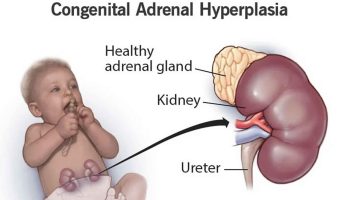What is factitious disorder
Factitious disorder is a serious mental disorder in which someone deceives others by appearing sick, by purposely getting sick or by self-injury. Factitious disorder previously known as Munchausen Syndrome and Munchausen by Proxy (factitious disorder by proxy), is a mental disorder in which a person acts as if they have an illness (factitious disorder imposed on self) or impose an illness on someone else (factitious disorder imposed on another). People with factitious disorder have consciously created their symptoms and may exaggerate or feign the symptoms in themselves or someone else. This may be done by purposely causing illness, self injury, or acting as if they are ill. They may tamper with diagnostic tests in order to have a positive result. It is a serious illness as it may cause severe harm or death to an individual or person in their care.
The essential feature of factitious disorder is the falsification of medical or psychological signs and symptoms in oneself or others that are associated with the identified deception. Individuals with factitious disorder can also seek treatment for themselves or another following induction of injury or disease. Methods of illness falsification can include exaggeration, fabrication, simulation, and induction. While a preexisting medical condition may be present, the deceptive behavior or induction of injury associated with deception causes others to view such individuals (or another) as more ill or impaired, and this can lead to excessive clinical intervention. Individuals with factitious disorder might, for example, report feelings of depression and suicidality following the death of a spouse despite the death not being true or the individual’s not having a spouse; deceptively report episodes of neurological symptoms (e.g., seizures, dizziness, or blacking out); manipulate a laboratory test (e.g., by adding blood to urine) to falsely indicate an abnormality; falsify medical records to indicate an illness; ingest a substance (e.g., insulin or warfarin) to induce an abnormal laboratory result or illness; or physically injure themselves or induce illness in themselves or another (e.g., by injecting fecal material to produce an abscess or to induce sepsis).
Individuals with factitious disorder imposed on self or factitious disorder imposed on another are at risk for experiencing great psychological distress or functional impairment by causing harm to themselves and others. Family, friends, and health care professionals are also often adversely affected by their behavior. Factitious disorders have similarities to substance use disorders, eating disorders, impulse-control disorders, pedophilic disorder, and some other established disorders related to both the persistence of the behavior and the intentional efforts to conceal the disordered behavior through deception. Whereas some aspects of factitious disorders might represent criminal behavior (e.g., factitious disorder imposed on another, in which the parent’s actions represent abuse and maltreatment of a child), such criminal behavior and mental illness are not mutually exclusive. The diagnosis of factitious disorder emphasizes the objective identification of falsification of signs and symptoms of illness, rather than an inference about intent or possible underlying motivation. Moreover, such behaviors, including the induction of injury or disease, are associated with deception.
The prevalence of factitious disorder is unknown, likely because of the role of deception in this population. Among patients in hospital settings, it is estimated that about 1 % of individuals have presentations that meet the criteria for factitious disorder.
The course of factitious disorder is usually one of intermittent episodes. Single episodes and episodes that are characterized as persistent and unremitting are both less common. Onset is usually in early adulthood, often after hospitalization for a medical condition or a mental disorder. When factitious disorder is imposed on another, the disorder may begin after hospitalization of the individual’s child or other dependent. In individuals with recurrent episodes of falsification of signs and symptoms of illness and/ or induction of injury, this pattern of successive deceptive contact with medical personnel, including hospitalizations, may become lifelong.
People with factitious disorder may be well aware of the risk of injury or even death as a result of self-harm or the treatment they seek, but they can’t control their behaviors and they’re unlikely to seek help. Even when confronted with objective proof — such as a videotape — that they’re causing their illness, they often deny it and refuse psychiatric help.
If you suspect that a person or loved one may be faking or exaggerating illnesses in themselves or someone else, it is important to take action as soon as possible. Try speaking to the person first about your concerns without accusing them of making it up. If they refuse to discuss it, become angry or engage in further self -harm or ongoing symptoms, contact a doctor to seek help and further advice. Try to monitor any medications they are taking or giving to someone else in order to control abuse or further harm from side effects or overdose. If your loved one causes self-inflicted injury or attempts suicide, call your local emergency number for emergency medical help or, if you can safely do so, take him or her to an emergency room immediately.
Factitious disorder is challenging to identify and hard to treat. However, medical and psychiatric help are critical for preventing serious injury and even death caused by the self-harm typical of this disorder.
Malingering vs factitious disorder
Malingering is differentiated from factitious disorder by the intentional reporting of symptoms for personal gain (e.g., money, time off work). In contrast, the diagnosis of factitious disorder requires that the individual is taking surreptitious actions to misrepresent, simulate, or cause signs or symptoms of illness or injury in the absence of obvious external rewards.
Factitious disorder is not the same as inventing medical problems for practical benefit, such as getting out of work or winning a lawsuit. Although people with factitious disorder know they are causing their symptoms or illnesses, they may not understand the reasons for their behaviors or recognize themselves as having a problem.
Factitious disorder causes
The cause of factitious disorder is unknown. However, the disorder may be caused by a combination of psychological factors and stressful life experiences. Some research indicates that past abuse or neglect as a child may contribute, poor health or frequent need for hospitalization, and possibly a link with personality disorders.
Those who inflict illness on others may do so for the reasons mentioned but also to assume the importance of a carer role. It may also be related to a grievance with the medical profession or a bad experience in hospital or with a previous treatment for the person or a family member. Often it is to draw attention and sympathy to themselves.
Risk factors for factitious disorder
Several factors may increase the risk of developing factitious disorder, including:
- Childhood trauma, such as emotional, physical or sexual abuse
- A serious illness during childhood
- Loss of a loved one through death, illness or abandonment
- Past experiences during a time of sickness and the attention it brought
- A poor sense of identity or self-esteem
- Personality disorders
- Depression
- Desire to be associated with doctors or medical centers
- Work in the health care field
Factitious disorder is considered rare, but it’s not known how many people have the disorder. Some people use fake names to avoid detection, some visit many different hospitals and doctors, and some are never identified — all of which make it difficult to get a reliable estimate.
Factitious disorder prevention
Because the cause of factitious disorder is unknown, there’s currently no known way to prevent it. Early recognition and treatment of factitious disorder may help avoid unnecessary and potentially dangerous tests and treatment.
Factitious disorder symptoms
Factitious disorder symptoms can range from mild (slight exaggeration of symptoms) to severe (previously called Munchausen syndrome). The person may make up symptoms or even tamper with medical tests to convince others that treatment, such as high-risk surgery, is needed. The person with factitious disorder may not understand their behavior or realize the results of their actions. It is not an attempt to miss work or school, but a real creation of illness or injury. Generally when imposed on another person (by proxy), it is a parent inflicting harm on a child, and is a form of child abuse.
Factitious disorder symptoms involve mimicking or producing illness or injury or exaggerating symptoms or impairment to deceive others. People with the disorder go to great lengths to hide their deception, so it may be difficult to realize that their symptoms are actually part of a serious mental health disorder. They continue with the deception, even without receiving any visible benefit or reward or when faced with objective evidence that doesn’t support their claims.
Factitious disorder signs and symptoms may include:
- Convincing medical problems with possible frequent hospitalization.
- Inconsistent symptoms that may become worse for no apparent reason
- Non responsive conditions to standard treatments
- A strong knowledge of medical terms and diseases and encouraging frequent tests or even operations for themselves or another person
- Ongoing requests for medications
- Seeking treatment and opinions from several doctors or hospitals, which may include using a fake name
- Excluding family and friends from speaking with doctors about the diagnosis or condition
- Frequent stays in the hospital
- Eagerness to have frequent testing or risky operations
- Many surgical scars or evidence of numerous procedures
- Having few visitors when hospitalized
- Arguing with doctors and staff
- Relapses frequently following an improvement in the condition
- Self -harm
Factious disorder imposed on another
Factitious disorder imposed on another (previously called Munchausen syndrome by proxy) is when someone falsely claims that another person has physical or psychological signs or symptoms of illness, or causes injury or disease in another person with the intention of deceiving others.
People with this disorder present another person as sick, injured or having problems functioning, claiming that medical attention is needed. Usually this involves a parent harming a child. This form of abuse can put a child in serious danger of injury or unnecessary medical care.
How those with factitious disorder fake illness
Because people with factitious disorder become experts at faking symptoms and diseases or inflicting real injuries upon themselves, it may be hard for health care professionals and loved ones to know if illnesses are real or not.
People with factitious disorder make up symptoms or cause illnesses in several ways, such as:
- Exaggerating existing symptoms. Even when an actual medical or psychological condition exists, they may exaggerate symptoms to appear sicker or more impaired than is true.
- Making up histories. They may give loved ones, health care professionals or support groups a false medical history, such as claiming to have had cancer or AIDS. Or they may falsify medical records to indicate an illness.
- Faking symptoms. They may fake symptoms, such as stomach pain, seizures or passing out.
- Causing self-harm. They may make themselves sick, for example, by injecting themselves with bacteria, milk, gasoline or feces. They may injure, cut or burn themselves. They may take medications, such as blood thinners or drugs for diabetes, to mimic diseases. They may also interfere with wound healing, such as reopening or infecting cuts.
- Tampering. They may manipulate medical instruments to skew results, such as heating up thermometers. Or they may tamper with lab tests, such as contaminating their urine samples with blood or other substances.
Factitious disorder complications
People with factitious disorder are willing to risk their lives to be seen as sick. They frequently have other mental health disorders as well. As a result, they face many possible complications, including:
- Injury or death from self-inflicted medical conditions
- Severe health problems from infections or unnecessary surgery or other procedures
- Loss of organs or limbs from unnecessary surgery
- Alcohol or other substance abuse
- Significant problems in daily life, relationships and work
- Abuse when the behavior is inflicted on another
Factitious disorder diagnosis
Diagnosing factitious disorder is often extremely difficult. People with Factitious Disorder become very good at faking symptoms and illness, therefore making it difficult for doctors to determine if the illness is real or not. People with factitious disorder are experts at faking many different diseases and conditions. And often they do have real and even life-threatening medical conditions, even though these conditions may be self-inflicted. They may be unable to control their behavior when creating symptoms, injury or illness. They will seek help for the conditions they have created but rarely for the treatment of factitious disorder itself, and in fact may deny any association with this disorder. The person’s use of multiple doctors and hospitals, the use of a fake name, and privacy and confidentiality regulations may make gathering information about previous medical experiences difficult or even impossible.
The doctor must consider all symptoms and rule out any possible physical or other mental illnesses before diagnosing factitious disorder. If there is no apparent physical reason for the symptoms and the person continues to insist they exist, the doctor may refer them to a psychiatrist or psychologist based on the patient’s behavior and attitude toward medical treatment.
Diagnosis is based on objectively identifying symptoms that are made up, rather than the person’s intent or motivation for doing so.
A doctor may suspect factitious disorder when:
- The person’s medical history doesn’t make sense
- No believable reason exists for an illness or injury
- The illness does not follow the usual course
- There is a lack of healing for no apparent reason, despite appropriate treatment
- There are contradictory or inconsistent symptoms or lab test results
- The person resists getting information from previous medical records, other health care professionals or family members
- The person is caught in the act of lying or causing an injury
Some signs the doctor may observe include:
- Are recommended treatments working for the symptoms and do the symptoms make sense based on test results and assessments
- Is the person willing to undergo more testing and procedures or are they requesting them
- Is there other medical evidence such as previous records or family knowledge to confirm the patient’s history
To help determine if someone has factitious disorder, doctors:
- Conduct a detailed interview
- Require past medical records
- Work with family members for more information
- Run only tests required to address possible physical problems
- May use the criteria for factitious disorder in the Diagnostic and Statistical Manual of Mental Disorders (DSM-5), published by the American Psychiatric Association
Factitious disorder DSM 5 Diagnostic Criteria
Factitious Disorder Imposed on Self
- A. Falsification of physical or psychological signs or symptoms, or induction of injury or disease, associated with identified deception.
- B. The individual presents himself or herself to others as ill, impaired , or injured.
- C . The deceptive behavior is evident even in the absence of obvious external rewards.
- D . The behavior is not better explained by another mental disorder, such as delusional disorder or another psychotic disorder.
Specify: Single episode Recurrent episodes (two or more events of falsification of illness and/or induction of injury)
Factitious Disorder Imposed on Another (Previously Factitious Disorder by Proxy)
- A. Falsification of physical or psychological signs or symptoms, or induction of injury or disease, in another, associated with identified deception.
- B. The individual presents another individual (victim) to others as ill, impaired, or injured.
- C. The deceptive behavior is evident even in the absence of obvious external rewards.
- D. The behavior is not better explained by another mental disorder, such as delusional disorder or another psychotic disorder.
- Note: The perpetrator, not the victim, receives this diagnosis.
- Specify: Single episode or Recurrent episodes (two or more events of falsification of illness and/or induction of injury)
Factitious disorder treatment
Treatment of factitious disorder is often difficult, and there are no standard therapies. Because people with factitious disorder want to be in the sick role, they’re often unwilling to seek or accept treatment for the disorder. However, if approached in a gentle, nonjudgmental way, a person with factitious disorder may agree to be treated by a mental health professional.
Nonjudgmental approach
Direct accusations of factitious disorder typically make the affected person angry and defensive, causing him or her to abruptly end a relationship with a doctor or hospital and seek treatment elsewhere. So the doctor may try to create an “out” that spares your loved one the humiliation of admitting to faking symptoms and offer information and help.
For example, the doctor may reassure your loved one that not having an explanation for medical symptoms is stressful and suggest that the stress may be responsible for some physical complaints. Or the doctor may ask your loved one to agree that, if the next medical treatment doesn’t work, they’ll explore together the idea of a possible psychological cause for the illness.
Either way, the doctor will try to steer your loved one toward care with a mental health professional. And both doctors and loved ones can reinforce healthy productive behaviors without giving undo attention to symptoms and impairments.
Treatment options
Treatment often focuses on managing the condition, rather than trying to cure it. Treatment generally includes:
- Having a primary care doctor. Using one doctor or gatekeeper to oversee medical care can help manage needed care and the treatment plan and reduce or eliminate visits to numerous doctors, specialists and surgeons.
- Psychotherapy. Talk therapy (psychotherapy) and behavior therapy may help control stress and develop coping skills. If possible, family therapy also may be suggested. Other mental health disorders, such as depression, also may be addressed.
- Medication. Medications may be used to treat additional mental health disorders, such as depression or anxiety.
- Hospitalization. In severe cases, a temporary stay in a psychiatric hospital may be necessary for safety and treatment.
Treatment may not be accepted or may not be helpful, especially for people with severe factitious disorder. In these cases, the goal may be to avoid further invasive or risky treatments. In cases where the factitious disorder is imposed on others, the doctor assesses for abuse and reports the abuse to the appropriate authorities, if indicated.
Home remedies
Along with professional treatment, these tips may help people who have factitious disorder:
- Stick to your treatment plan. Attend therapy appointments and take any medications as directed. If you feel an urge to harm yourself or cause yourself to become ill, talk honestly to your therapist or primary care doctor for better ways to cope with emotions.
- Have a medical gatekeeper. Have one trusted primary doctor to manage your medical care, rather than visiting numerous doctors, specialists and surgeons.
- Remember the risks. Remind yourself that you could face permanent injury or even death each time you hurt yourself or have a risky test or surgery needlessly.
- Don’t run. Resist urges to find a new doctor or to flee to a new town where medical professionals aren’t aware of your background. Your therapist can help you overcome these powerful urges.
- Connect with someone. Many people with factitious disorder lack friendships and other relationships. Try to find someone you’re able to confide in, share enjoyable times with and offer your own support to.





